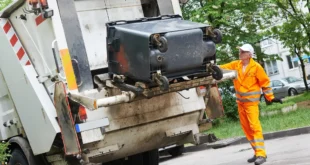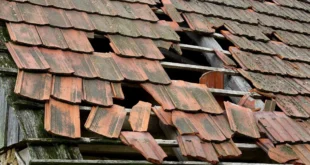Maintaining a swimming pool is more complex than it might seem at first glance. Proper pool care is essential not only for the longevity of the pool itself but also for the safety and health of those who enjoy it. Unfortunately, it’s easy for pool owners to fall into common traps that can lead to murky waters, damaged equipment, and unhappy swimmers. This guide aims to shed light on the most prevalent pool care mistakes and how to avoid them, ensuring your pool remains a sparkling oasis for years to come.
Skipping Regular Water Testing
Regular water testing is crucial in pool maintenance. Without it, imbalances in pool chemistry can go unnoticed, leading to algae growth, cloudy water, and even damage to pool equipment. It’s recommended to test pool water at least once a week and after heavy use to ensure levels of chlorine, pH, alkalinity, and stabilizer are within the proper ranges. Ignoring this step can not only make your pool unpleasant but can also cause skin irritations and eye problems for swimmers.
In addition to regular testing, understanding how to adjust the chemicals properly is essential. Adding too much chlorine, for example, can bleach swimsuits and pool liners, while insufficient chlorine levels can allow bacteria and algae to flourish. Seeking advice from pool care professionals or using digital testing kits and applications can help maintain the perfect balance.
Cleaning and Maintenance Negligence
A clean pool is a safe pool. Leaves, debris, and other foreign objects should be skimmed daily to avoid clogged filters and potential damage to the pool’s surface. Vacuuming the pool regularly also helps eliminate dirt and algae buildup on walls and floors. By getting a pool cleaner or robotic vacuum, this process can be made more manageable and efficient. Plus, maintaining a consistent schedule for pool cleaning prevents you from falling behind and having to deal with an overly dirty pool.
Besides physical cleaning, regular maintenance of pool equipment is equally important. Neglecting to clean or replace filters can lead to reduced water circulation and increased strain on the pump, which can result in costly repairs down the line. It’s also crucial to keep an eye on water levels and ensure the pool’s pH, alkalinity, and calcium hardness are balanced within the recommended ranges. A well-maintained pool will not only look more inviting but also save you money in the long run.
Overlooking Filter Maintenance
The pool filter is a critical component of a healthy pool system, trapping debris and preventing contaminants from circulating back into the water. Neglecting filter maintenance can quickly lead to clogged filters, reduced water circulation, and ineffective filtration, jeopardizing the cleanliness of your pool. It’s important to clean or replace pool filters according to the manufacturer’s recommendations, which usually means checking sand and cartridge filters every few weeks during peak usage periods.
Forgetting to backwash or clean your filter not only deteriorates water quality but also puts excessive strain on the pool pump, potentially leading to costly repairs. Watching for signs of decreased water flow and increased pressure on the filter gauge can help indicate when maintenance is needed. Additionally, during the off-season, thoroughly cleaning and drying out the filter before storage can prevent mold growth and ensure a smooth start-up when pool season returns.
Ignoring Pool Surroundings
The area surrounding your pool plays a significant role in maintaining clean and clear water. Overhanging trees, bushes, and even outdoor furniture can shed debris into the pool, increasing the workload on the filtration system and introducing potential contaminants. Regularly trimming plants and choosing pool-friendly landscaping can significantly reduce the amount of debris finding its way into your pool.
Leaves, twigs, and other organic materials that enter your pool can decompose, leading to algae growth and murky water. Installing pool covers when the pool is not in use can greatly diminish the amount of debris that enters the water. Additionally, encouraging swimmers to rinse off before entering can help keep sunscreens, oils, and other lotions from affecting water quality.
Forgetting to Balance Pool Water
Proper balance of the pool water is not only about keeping the water clear but also about protecting the pool equipment and ensuring the health and safety of swimmers. Imbalances in pool chemicals can cause corrosion to pool ladders, heaters, and liners, reduce the effectiveness of chlorine, and lead to uncomfortable conditions for swimmers such as eye irritation and itchy skin. Regularly testing and adjusting the pH, alkalinity, and hardness of the water are vital steps in maintaining a balanced pool.
Failing to address high calcium hardness can lead to scale formation on the pool sides and in the filtration system, while low calcium levels can cause plaster finishes to dissolve slowly over time. Incorporating pool balancers into your maintenance routine can prevent these issues and extend the life of your pool. Additionally, using a water conditioner or sequestering agent can help manage metal levels in the water, preventing stains on the pool’s surfaces.
Underestimating the Impact of Weather
Weather conditions can significantly affect your pool’s water quality and maintenance needs. After heavy rain, for example, pools can be contaminated with pollutants washed in from the surroundings, and the chemistry of the pool water can be diluted. Proactively adjusting the pool chemicals before a forecasted storm can mitigate some of these effects. Additionally, after stormy weather, thoroughly skimming the pool and shocking the water can help restore clarity and balance.
During hot summer months, increased water temperatures and sunlight can deplete chlorine levels more quickly than usual, making the pool more susceptible to algae growth and bacteria. Frequent testing during these periods and adjusting chlorine levels accordingly can keep the water safe for swimming. Installing a pool cover can also reduce evaporation and temperature fluctuations, preserving water chemistry and saving on water and chemical use.
Final Words
Proper pool maintenance is not merely a task—it’s an ongoing commitment to ensuring the safety, health, and enjoyment of all who take a dip. By steering clear of the common mistakes outlined in this guide, pool owners can avoid unnecessary expenses, prolong the life of their pool, and keep the water inviting and pristine.

Regular testing, cleaning, and balancing, coupled with attentive upkeep of both the pool and its surroundings, form the bedrock of effective pool care. Remember, a well-maintained pool is more than a luxury; it’s a centerpiece for summer fun and relaxation. With diligence and the right practices, your pool can remain a sparkling oasis for many years to come.
 SlushWeb Bringing Facts to Light
SlushWeb Bringing Facts to Light



